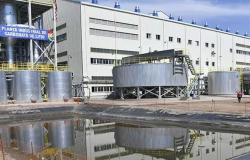
With a gigantic territory like the province of Buenos Aires, Axel Kicillof is used to varied days. Inaugurate a kindergarten in Trenque Lauquen in the morning, meet with SMEs in San Martín in the afternoon and debate with rural producers in Pergamino at night. But April 27, the day of the first strike against the dictatorship in 1979 and the anniversary of the 2003 elections that paved the way for Néstor Kirchner’s government, will be remembered for a curiosity: the governor took a parallel route along the coast of the Río de la Plata that started in Ensenada, continued in Avellaneda and ended in Quilmes. In all three places the explicit statements and speeches were directed to President Javier Milei. And in all three the internal discussion of Peronism hovered, more explicit or less explicit depending on the case, about how to stand and what to do in the face of the Libertad Avanza Government. Not only today. Especially in the times to come.
As reported in the national edition of Page 12, the last act, that of Quilmes, had the closing performance of Cristina Fernández de Kirchner. Her speech of one hour and twenty revolved, among others, around these axes:
*”The people are being subjected to a useless sacrifice.”
*Part of this sacrifice is verified in 2,308 suspended public works and 119 paralyzed works in national universities.
*The key point of the Base Law that will begin to be discussed on Monday is privatizations, related to an extractive economy in gas, oil, agriculture and mining.
*No one can be against the fiscal surplus, which Argentina had between 2003, when Néstor Kirchner governed, until 2008, with CFK as President, the year of the fall of Lehman Brothers and the collapse of the global economy, which ended up liquidating two years later the energy balance.
*Businessmen have the right to seek greater profitability, and the State to control without promoting eternal regimes such as the one favored by Mercado Libre.
*”Go on television to talk about why energy bills are so high, because what the hell does it matter what you think of Juan, Pedro or José?”
*”Máximo tells me ‘You start with your master class again and you have me rotten.’ Yes, well, I have you rotten but if everyone knew and we studied a little more we could defend things better too.”
*”We should rethink why we could not reverse the energy regulatory framework in those years (of government), which left the market free. 80 percent of Cammesa are large users such as Techint, Edenor, Edesur, Transener and Aluar. In 2002, energy distribution was pesified but generation continued to be denominated in dollars. Can you imagine when there is a devaluation what happens with that…”
*”I ask all my colleagues and compatriots in general to join forces. Don’t let them turn Argentina into a wasteland of unemployed people again, with scientists who leave.”
*”When in Avellaneda I said one day that each comrade has a marshal’s baton in his backpack, it was not to give it to another comrade, but to go out into the street and rediscuss the country we want. Recognizing what we did, admitting what we lacked and looking forward.”
As the event was called to inaugurate the “Néstor Kirchner” microstadium in Quilmes, CFK thanked Mayor Mayra Mendoza, on behalf of herself and, she said, “my children.” He also included his children in another thank you: to Jorge Ferraresi, who two hours earlier had inaugurated a Kirchner Cultural Center on Maciel Island.
In Quilmes, in addition to Cristina, Mendoza spoke. Kicillof was in the front row with several of his ministers, such as Andrés Larroque, and his vice Verónica Magario, but the protocol did not include him in the list of speakers. On the other hand, the governor did close the event in Avellaneda, and before that in Ensenada. In both cases the mayors are sympathetic. Kicillof’s action was to go to both acts, in the same way that he also ended up going to the third, a decision about which there were doubts in provincial Peronism but which, in truth, had been made since the middle of the week. If the action was to be present, the governor’s word avoided any mention that could touch on any internal matter.
Kicillof also established his axes:
*He recalled that the Liberator of 1955 prohibited by decree the names of Juan Perón and Eva Perón “and they thought that this was how they were going to end Peronism, but they couldn’t, and now they want to remove the name of Néstor from the CCK but we are inaugurating a CCK in the province”.
*The march of the universities on April 23 shows that “the people are there, and all that is needed is for the leaders to rise to their level.”
*”Néstor put politics back in the hands of the popular sectors. With Néstor and Cristina they were protagonists of the most profound transformation in recent times.”
*”It takes courage and dedication. Will and audacity. Bring projects up to date. The last thing we should do is distract ourselves, because we have one of the most backward governments ever created on the continent.”
*”The Bases law is labor flexibility that takes rights, guarantees and legal security to Argentine workers, as part of a policy carried out in a cruel and heartless manner. This law does not have any article in favor of workers, in favor of the province of Buenos Aires”.
*”That DNU 70 does not have to remain in force.”
*”There are things that are defined in the street with organization, with struggle, with presence.”
*”To honor Néstor is to reclaim what was stolen from the Province. That is why we continue to defend the right to housing, to dignity. Argentina had a President like Néstor who told the Fund ‘everything is fine but outside of Argentina’ “That he said ‘Alca, alcarajo’. That strengthened Latin American unity. We are going to continue defending those who have the least, the industry, the boys and girls, the universities.”
In Ensenada, where the morning event had been called to demand the construction of the Magdalena canal, which would avoid river and maritime dependence on the port of Montevideo and would prevent water transport from continuing to be divided in two due to the lack of dredging in In particular, the host Mario Secco also added his nuance. “That thing about staying still until things explode is shit,” he said about those who want Milei to burn alone without actively opposing it. And in response to the songs in favor of Kicillof he said: “We are not saying that he is the only one. He is ours. If there is another, raise your hand.”
In Avellaneda Ferraresi chose to start the event with a five-minute video that selects phrases from Néstor Kirchner. One: “We are neither sectarian nor exclusive, as the General said.” Another: “We do not want the almost businesslike mechanics of politics to be repeated, which tends to remember friends and colleagues to use them in electoral matters. We do not want to help have ‘disciplined’ troops. We want to have colleagues who think, who tell us the truth, that they have transgressive capacity and help us make mistakes as little as possible. We no longer want the practices of the cult of individualism, personality and the theory of the boss, those theories that have done so much damage.
In her brief speech before Kicillof’s, Ferraresi recalled that in 2016, when she was no longer President, Avellaneda named a building “Cristina Kirchner.” He recalled that in 2005 he saw Kirchner for the first time: “He got out of the truck and asked about me, but not for myself but because he was the son of Alfredo Ferraresi, who was a union fighter of the Resistance of ’55 and founder of the CGT of the Argentines. On April 27, 1979, my father was one of the leaders who called for a strike against the dictatorship. Once I asked him if they were not afraid. He said yes, of course, but that it was his responsibility. Was it the moment? Was the correlation of forces given? Sometimes you don’t have to ask yourself those questions but rather assume what you have to do.
In another part of his message he mentioned that in 2017 he accompanied CFK in the formation of the Citizen Union, and said that the mayor of La Matanza Fernando Espinoza, who was by his side while he was remembering, was the president of the provincial PJ “and he agreed “I agreed to give the name to another political space because I understood that by doing so we could recover the competitiveness of Peronism.”
His ending was concise: “The future is Axel Kicillof.”
Then Kicillof spoke. And then there was the lack of concentration with a song by Víctor Heredia summed up by Los del fuego: “Surviving.”





